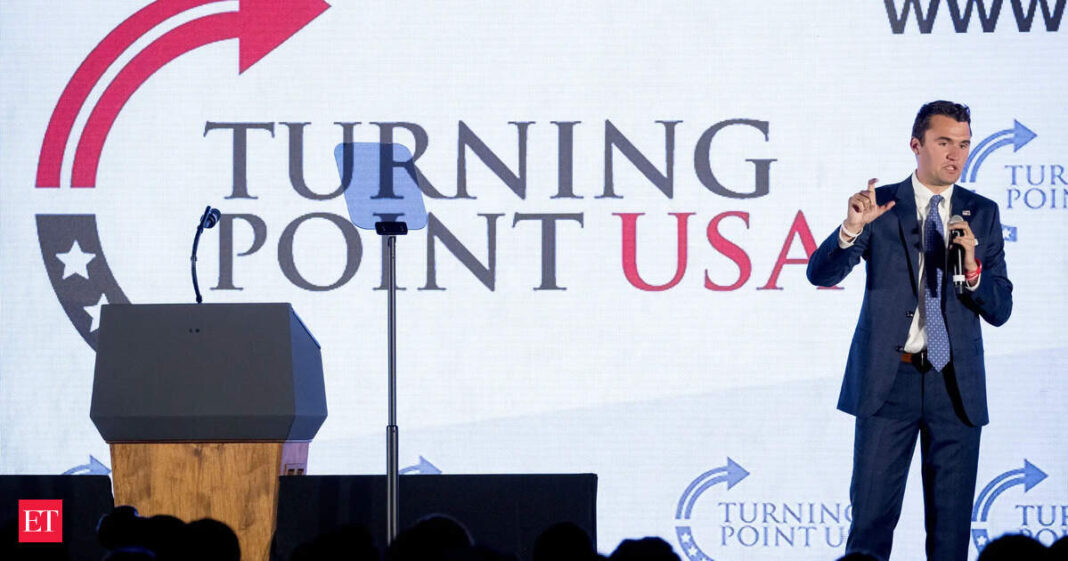Anti-Defamation League Calls Out Turning Point USA: A Controversial Designation
The Anti-Defamation League (ADL), a leading civil rights organization dedicated to fighting anti-Semitism and bigotry, has officially labeled Turning Point USA (TPUSA)—a politically active organization founded in 2012 by the late Charlie Kirk—as part of its extremism and hate glossary. This designation has ignited a fiery debate, particularly among conservative circles, with figures such as Donald Trump Jr. and Elon Musk vocally criticizing the ADL’s classification, which underscores the ongoing cultural and political divisions in America.
ADL on Turning Point USA
According to insights from the ADL’s Center on Extremism, TPUSA has made significant inroads in galvanizing young conservatives, attracting a diverse audience that spans from moderate Republicans to far-right extremists. Despite its efforts to promote conservative values, TPUSA has drawn scrutiny for allegedly endorsing Christian nationalism—the belief that Christianity should dominate governance and societal structures in the U.S. Alongside this, the organization has been linked to various conspiracy theories, particularly concerning election fraud and COVID-19.
Allegations and Extremist Connections
The ADL’s allegations extend to documentations of bigoted remarks made by some individuals associated with TPUSA, notably targeting marginalized communities such as Black Americans and the LGBTQ+ community. While TPUSA denies allegiance to white supremacist ideologies, instances where white nationalists have attended its events raise eyebrows. Moreover, the ADL points to TPUSA’s annual AmericaFest conference where extremists and far-right conspiracy theorists have been featured prominently.
Despite Kirk’s public denouncements of extremist groups, asserting they do not represent TPUSA’s beliefs, the ADL argues that the organization’s platform has become a “vast platform for extremists and far-right conspiracy theorists.” This tension raises questions about the boundaries of free speech and the implications of such affiliations in American politics.
The Controversial ‘Professor Watchlist’
Furthermore, the ADL delves into TPUSA’s contentious initiatives like the “Professor Watchlist,” designed to “expose” educators allegedly disseminating leftist or “anti-American” propaganda. The watchlist has been criticized for targeting academic discussions around Critical Race Theory and perceptions of sexual and gender ideology, which TPUSA considers “dangerous.”
Political and Social Media Fallout
The ADL’s classification sparked immediate backlash from notable conservative figures. Donald Trump Jr. voiced strong opposition, labeling the designation a politically motivated “attack” on young conservative activism. He praised TPUSA’s initiatives aimed at combating what he describes as “leftist indoctrination” in educational systems.
Elon Musk, the owner of the social media platform X, intensified the controversy by labeling the ADL itself as a “hate group” that supposedly “hates Christians.” Musk argued that the ADL conflates the extremist Christian Identity movement—a racist and white supremacist ideology—with mainstream Christianity. He dismissed the ADL’s designation of TPUSA as “deeply wrong” and defended the organization as a legitimate voice for Christian conservatives.
This clash saw Musk engaging actively on social media, retweeting conservative figures who condemned the ADL and defended TPUSA’s stance. However, irony emerged as Musk’s AI chatbot, “Grok,” unexpectedly clarified the ADL’s genuine mission of combating anti-Semitism and extremism, emphasizing that it targets extremist fringe groups rather than Christianity as a whole.
Broader Implications
The controversy surrounding the ADL’s classification of TPUSA reflects not only tensions within the conservative movement but also broader societal debates about extremism, free speech, and the nature of activism. As discussions continue to overflow both online and in political circles, the implications of these designations will likely resonate throughout the political landscape, shaping the narratives that inform upcoming elections and cultural discourse.
In this charged climate, the actions and reactions of organizations like the ADL and TPUSA will remain critical as they navigate the complexities of extremism, civil rights, and the public’s perception of both.



